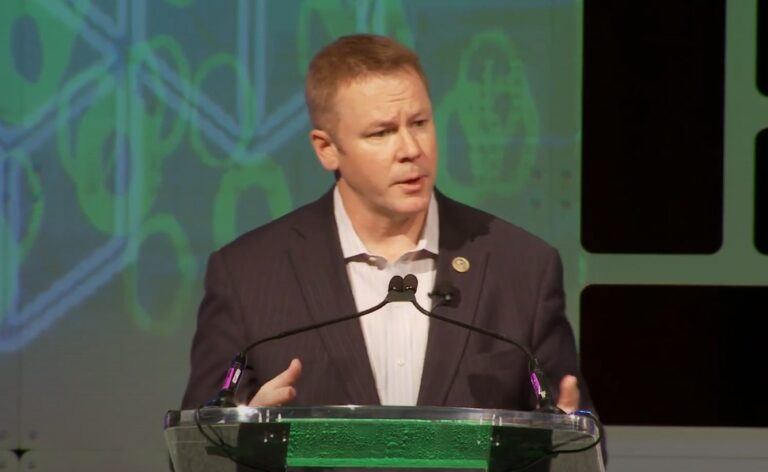Recently, Warren Earl Davidson, who is the member of the United States House of Representatives from Ohio’s 8th congressional district, spoke to journalist/podcaster Laura Shin — in episode #176 of the “Unchained” podcast, which was released on June 9 — about a wide range of topics of interest to the crypto community.
If you are not from Ohio but you feel like you may have heard about Congressman Davidson before, it is probably because of what he did back in December 2018.
You see, on 20 December 2018, U.S. congressmen Warren Davidson (OH-08) and Darren Soto (FL-09) introduced the bipartisan bill “Token Taxonomy Act of 2018” (H.R. 7356) in order to “provide light-touch regulatory certainty for businesses, entrepreneurs, and regulators in the blockchain economy.”
H.R. 7356 is “the product of months long collaboration” following the bipartisan roundtable hosted on 25 September 2018 by Congressman Warren Davidson in Washington, DC on how cryptocurrencies should be regulated; as CryptoGlobe previously reported, this was attended by around 50 representatives from Wall Street, venture capital firms, and the crypto industry. It was there that Congressmen Darren Soto, Ted Budd (R-NC), and Tom Emmer (R-MN) “united in a commitment with other panel participants and stakeholders to provide the legislative certainty innovation needs to flourish in the U.S.”
The joint press release by the two congressmen said that this legislation “clarifies that securities laws do not apply to companies that use blockchain once they reach their goal of becoming a functional network”, and that the implementation of “this fix will stop fraud from spreading and provide the certainty innovation needs to flourish.”
When asked how he got into Bitcoin, Davidson, who owned a group of manufacturing companies before he became a congressman, said:
“I took an interest in Bitcoin early on, you know, because in manufacturing we had a lot of international payments and, you know, it has all the payment system problems that people recognize… and so you would wire transfer money and early on it was really clunky because you couldn’t wire direct to China, for example.
“So, you’d go through Hong Kong. It was very inefficient, and that led to an interest in things like DigiCash and other things.
“So when Bitcoin came on the scene, you say ‘oh, this really is a pretty elegant solution, pretty neat idea’.”
Later in the interview, when discussing COVID-19 and the monetary and fiscal stimulus measures that the U.S. has used against it, Davidson said:
“The Modern Monetary Theory people believe that if you have a central bank you can just keep printing [money]. That’s not what history shows, and frankly the logic of it is that you can dilute the value of everyone’s money and there is no consequence for it, and that’s completely irrational.
“So, people in the crypto space, and obviously the Bitcoin fans, will see the fallacious argument for what it is, but I think if you had Bitcoin as your national currency, you would see the lack of flexibility that it would provide for a central bank in a situation like this.
“I view Bitcoin, personally, kind of like digital gold versus a true currency. I think it’s a great store of value.
“I don’t own any personally. I think, given the role and how vocal I have been as a legislator about the [crypto] space, that it would be inappropriate for me to do so, though not technically a violation of the rules.”








